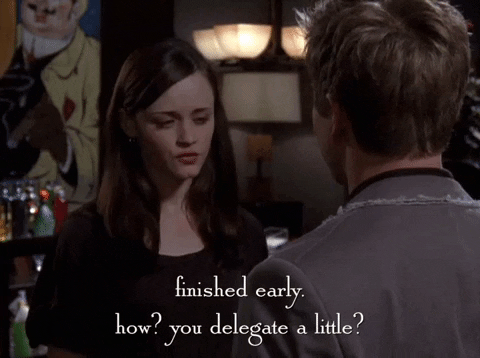- New Nouns
- Posts
- A WIDGET for you
A WIDGET for you
Genius feels like a stretch.

A WIDGET for you

There are about 6 million assessments promising some profound insight into your life. Myers-Briggs. Strengths Finder. Kolbe. DiSC. Motivation Code. Predictive Index, Culture Index, palm reading, dragon bones, tea leaves.
You get the idea.
For most of us, they read a bit like reading your horoscope in the back of cosmo. You latch on to the stuff that hits. Ignore the stuff that misses.
It’s an exercise in confirmation bias.
I’ve taken them all.
This is the one I always recommend…
Last year, Patrick Lencioni released The 6 Types of Working Genius and it instantly became a favorite assessment framework. Below are a few reasons why.
1. The book is… readable.

Lencioni is famous for writing the majority of his books as ‘fables’. Fictional stories that teach the framework he is teaching. This makes his books much easier to get through and fantastic as audiobooks.
2. It is rooted in type of work.

So many assessments attempt to tell you how your brain works, or what industry you should work in. I am an extrovert who should do something creative. Yay.
In Working Genius, Lencioni proposes that all kinds of work go through the same six stages, and understanding which stages you should be doing (and which you should be avoiding) can allow you to find meaningful work in any industry.
I’ll outline the framework briefly below.
3. Working Genius and Delegate and Elevate are best friends.

In EOS, we teach a tool called Delegate and Elevate that helps teams and their leaders get the most out of their time. In my experience, pairing the Working Genius assessment with Delegate and Elevate can create a ton of insight into where to let go of the vine (if you don’t know what that means, reply and I’ll explain).
A quick overview of The 6 Types of Working Genius
Lencioni proposes that all types of work, whether a professional project or planning a vacation, go through the same six stages.
Every person has two stages, which Lencioni calls their “working genius.” These are types of work that you are great at and can do for a long time without burnout. They are usually energy-positive, meaning time spent in these areas energizes you instead of draining you. Delegate and Elevate are usually in the “Love/Great” category.
Every person has two stages he calls their “working competencies.” These are types of work that you can do and may even enjoy doing, but if it is all you do for an extended period, you risk burning out. In Delegate and Elevate these are usually “Like/Good” or “Don’t Like/Good”.
Finally, every person has two stages he calls his “working frustrations.” Doing these for even a short period can be highly draining and difficult to overcome. In Delegate and Elevate, these are usually “Don’t Like/Bad.”
Stage 1: Wonder
The natural gift of pondering the possibility of greater potential and opportunity in a given situation.
Stage 2: Invention
The natural gift of creating original and novel ideas and solutions.
Stage 3: Discernment
The natural gift of intuitively and instinctively evaluating ideas and situations.
Stage 4: Galvanizing
The natural gift of rallying, inspiring and organizing others to take action.
Stage 5: Enablement
The natural gift of providing encouragement and assistance for an idea or project.
Stage 6: Tenacity
The natural gift of pushing projects or tasks to completion to achieve results.
With the above in mind:
Spend as much of your time in your working genius as possible.
Spend as little of your time in your working frustrations as possible.
Build teams that are balanced across the six stages.

Take the assessment ⤵️
Buy the book ⤵️
be good
z

